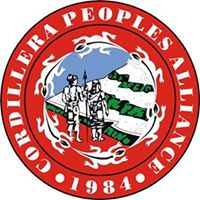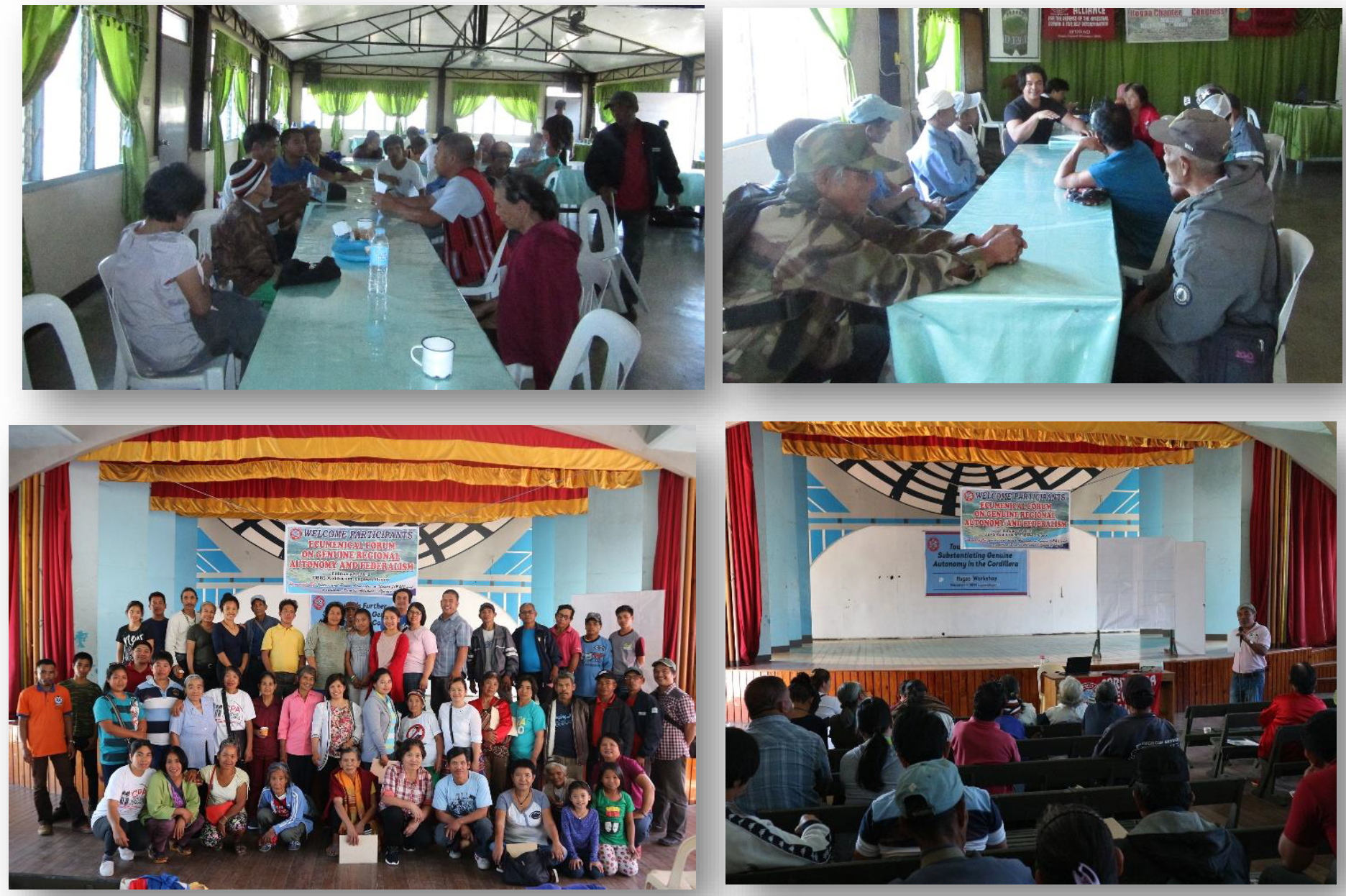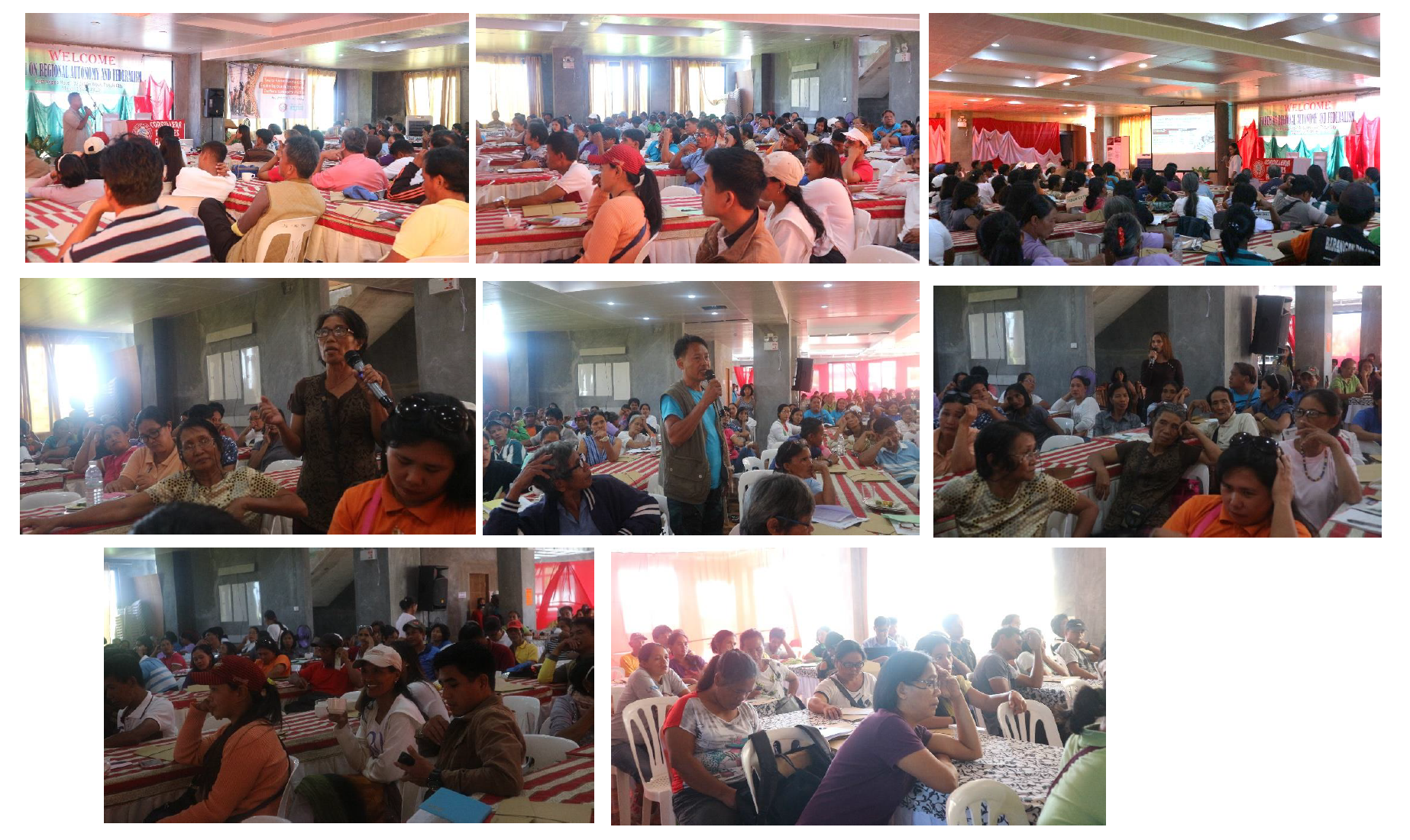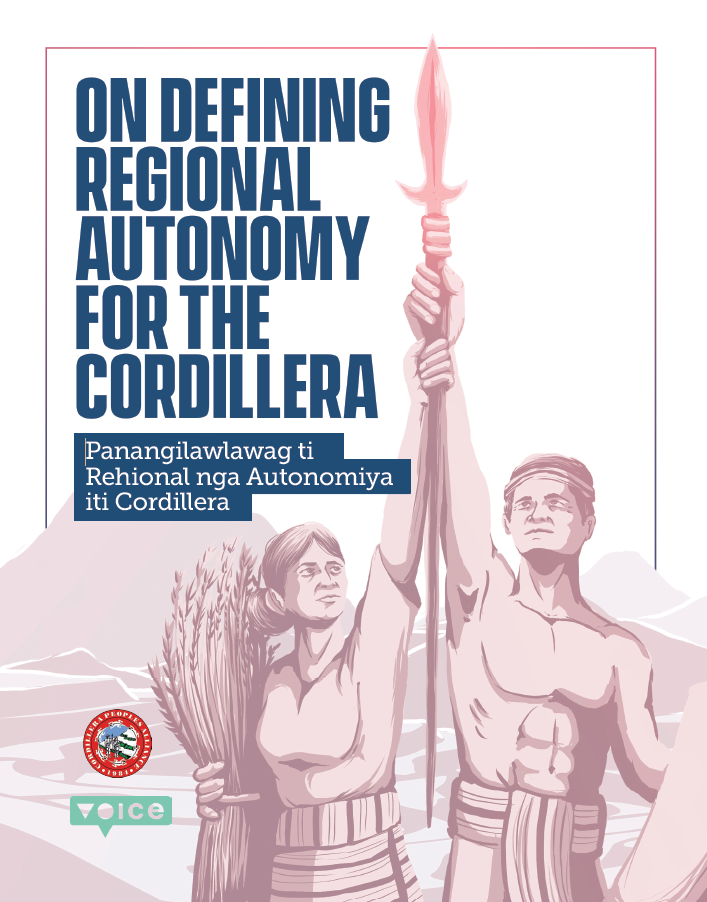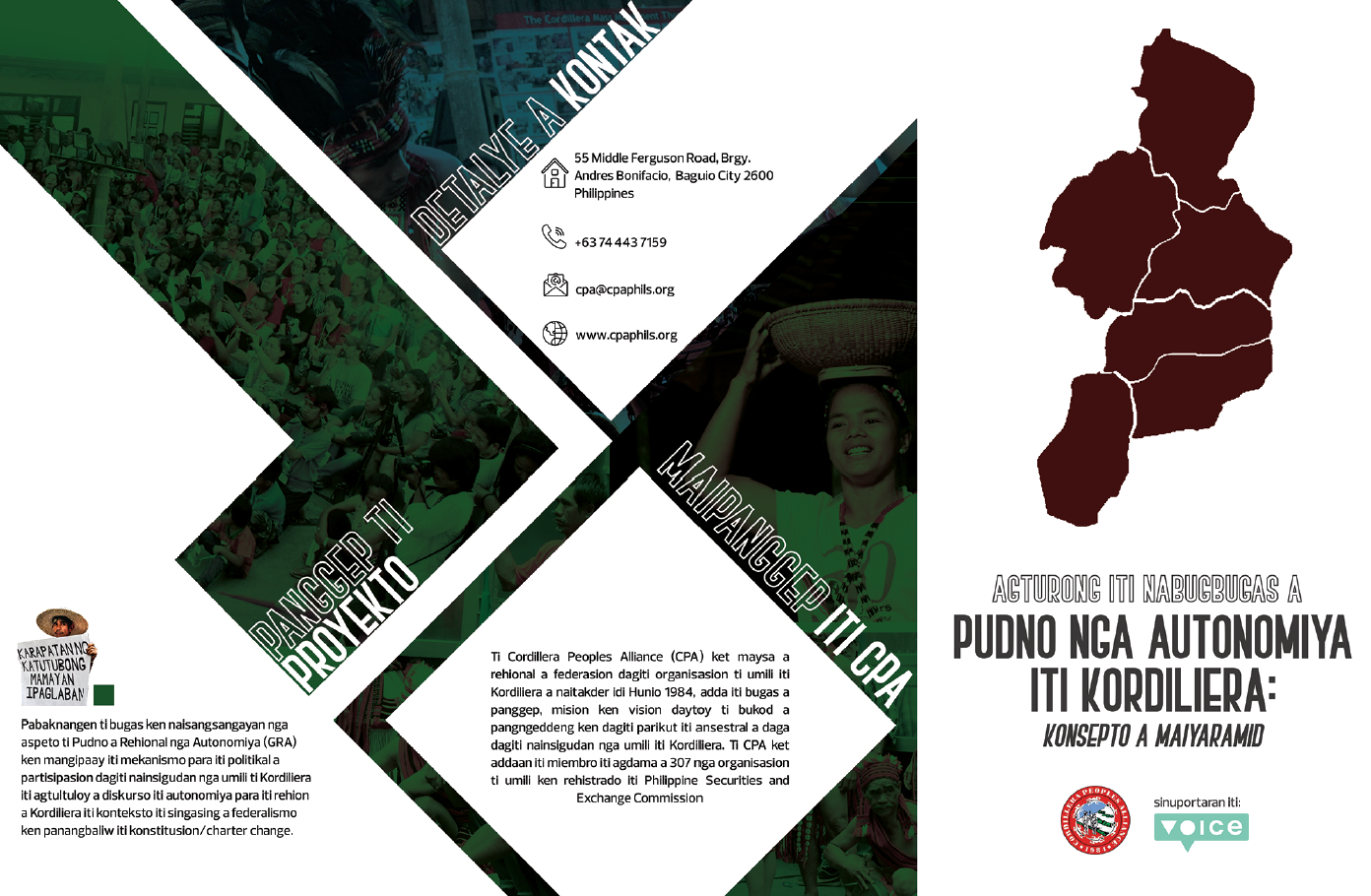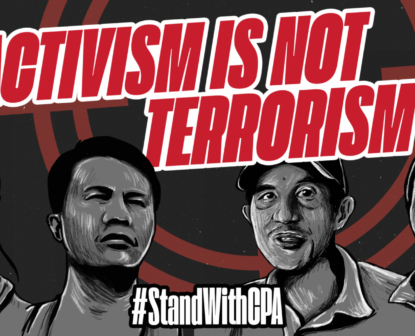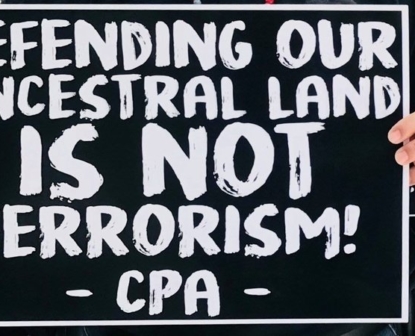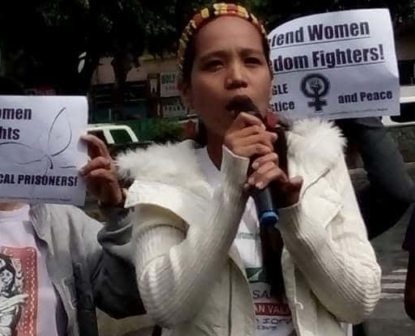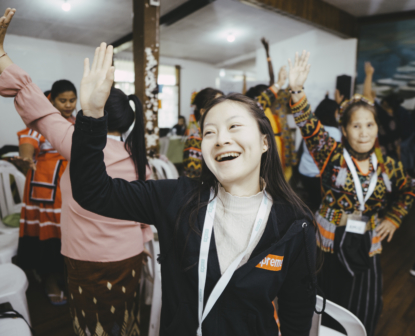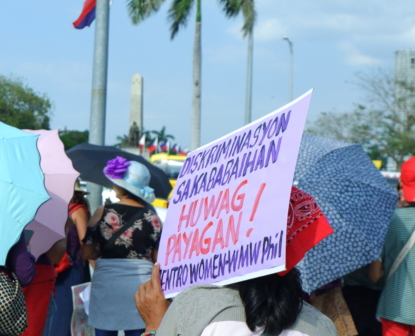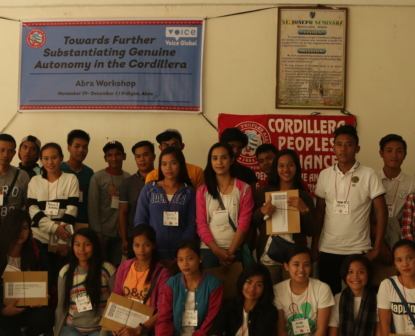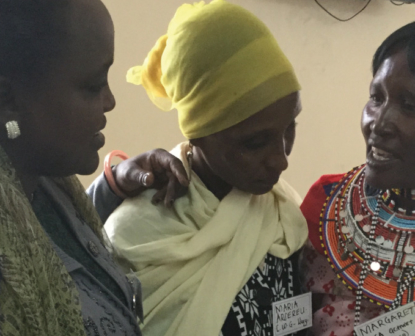Project
Realising IP autonomy in the Cordilleras
-
Amount Funded
101,408 EUROProject Duration
15 Aug 2018 - 29 Feb 2020 -
-
Lead organisation
-
Cordillera Peoples Alliance (CPA) is a regional federation of indigenous peoples in the Cordillera region, Philippines. CPA was founded in June 1984 in Bontoc, Mountain Province. CPA’s pioneers were mainly indigenous leaders and activists who spearheaded the widespread, successful opposition to the World Bank-funded Chico dams project and the commercial logging operations of the Cellophil Resources Corporation. This was during the Marcos dictatorship period, when the government and its corporate partners pursued destructive projects in the Cordillera, coupled with worsening militarisation and political repression.
Through the years, CPA launched sustained information drives, advocacy, campaigns and direct actions on indigenous peoples’ rights. These activities were implemented alongside organising work of various indigenous communities in the region and building their capacity through education seminars, training and various types of assistance. Presently, CPA has expanded to include 220 community organisations, four provincial chapters in Benguet, Mountain Province, Kalinga, and Abra, urban multi-sectoral chapter in Baguio city, inter-municipal chapter in Ifugao and Apayao and sectoral federations of youth, women, elders, peasant and cultural workers. It also has a special chapter encompassing communities traversed by the Abra River–the MACQUITACDG.
-
Organisation
Cordillera Peoples Alliance (CPA) is a regional federation of indigenous peoples in the Cordillera region, Philippines. CPA was founded in June 1984 in Bontoc, Mountain Province. CPA’s pioneers were mainly indigenous leaders and activists who spearheaded the widespread, successful opposition to the World Bank-funded Chico dams project and the commercial logging operations of the Cellophil Resources Corporation. This was during the Marcos dictatorship period, when the government and its corporate partners pursued destructive projects in the Cordillera, coupled with worsening militarisation and political repression.
Through the years, CPA launched sustained information drives, advocacy, campaigns and direct actions on indigenous peoples’ rights. These activities were implemented alongside organising work of various indigenous communities in the region and building their capacity through education seminars, training and various types of assistance. Presently, CPA has expanded to include 220 community organisations, four provincial chapters in Benguet, Mountain Province, Kalinga, and Abra, urban multi-sectoral chapter in Baguio city, inter-municipal chapter in Ifugao and Apayao and sectoral federations of youth, women, elders, peasant and cultural workers. It also has a special chapter encompassing communities traversed by the Abra River–the MACQUITACDG.
-
Project
Realising IP autonomy in the Cordilleras project innovates and enriches the substance and features of Genuine Regional Autonomy and provide a mechanism for political participation of Cordillera indigenous peoples in the continuing discourse on regional autonomy for the Cordillera with national developments such as House Bill 5343 and proposed shift to federal form of government.
The project provides a mechanism for political participation of Cordillera people in the continuing discourse on regional autonomy for the Cordillera with the above national developments by revisiting the lessons in earlier attempts to create a Cordillera autonomous region (1990, 1998, 2011, 2012, 2014 and 2017) including lessons from the experience of the failed experiment of the Autonomous Region of Muslim Mindanao (ARMM).
-
-
Realising IP autonomy in the Cordilleras project innovates and enriches the substance and features of Genuine Regional Autonomy and provide a mechanism for political participation of Cordillera indigenous peoples in the continuing discourse on regional autonomy for the Cordillera with national developments such as House Bill 5343 and proposed shift to federal form of government.
The project provides a mechanism for political participation of Cordillera people in the continuing discourse on regional autonomy for the Cordillera with the above national developments by revisiting the lessons in earlier attempts to create a Cordillera autonomous region (1990, 1998, 2011, 2012, 2014 and 2017) including lessons from the experience of the failed experiment of the Autonomous Region of Muslim Mindanao (ARMM).
-
“I participated in the Provincial Workshop supported by this project way back November 29-30, 2018 in Abra province, where the history of the mass struggles of indigenous peoples against large destructive projects were discussed. A brief history as well on how Genuine Regional Autonomy was introduced in the region through members of the Cordillera Peoples Alliance. It was an eye-opener for me as an indigenous youth working with the CPA, these were facts needed to be passed on to the next generation. I came to understand that the genuine regional autonomy should be for the people achieving rights to self-determination and asserting their rights over their ancestral land. This gave me a better understanding about how we struggled for Genuine Regional Autonomy.” – Aisah Mariano, Indigenous Youth
The Cordillera People’s Alliance intended to substantiate/enrich the substance and features of genuine regional autonomy (GRA) by generating answers to the learning questions below. This enriched substance will form part of the basis for engaging in the continuing discourse on regional autonomy. The impact that CPA aimed through this project is for its constituents to judiciously articulate the substance of what they refer to as regional autonomy that is genuine in contrast to a regional autonomy that is bogus.

Learning Questions
- What are the contentious provisions in House Bill 5343 (An Act to Establish the Autonomous Cordillera Region)?
- What are the contemporary practices on ancestral proprietary rights to the disposition, utilization, management and development of ancestral land and natural resources?
- What are the contemporary practices in exercising the right to self -determination in the aspect of economic, social, culture and politics?
- What should be the substance of regional autonomy in the aspect of economics, social, culture and politics? How are these manifested at the ancestral domain level?
- How to operationalize the relationship between regional autonomous governance and national government and between the regional autonomous government and “ancestral territory-based autonomy”?
- What should be the processes in building genuine regional autonomy in the Cordillera?
- What are the relevant provisions that we can draw from the Bangsa Moro Basic Law?
From the successful workshops at provincial and regional levels, CPA observed enhanced analytical capacity of the target participants in understanding the framework for GRA, which in turn serves as their guide to analyse proposed laws on Cordillera autonomy. There was also an improved understanding of Cordillera history, as well as the critique on Charter Change and then proposed federalism. These observations were based on the oral dialogues with the participants during the workshops. Ultimately, the project resulted in improved knowledge and some skills for analysis.

For the CPA, a concrete impact of the project is manifested in the communities that are confronted with unwanted commercial interventions on their ancestral land. Of particular contribution was on deepening of understanding of concept and practice of ancestral land/domain in the particular context of communities in the fringes of the Cordillera such as the lowland communities of Pinukpok, Kalinga.
Another striking response in the interviews from the key informants on what genuine autonomy means to them is the right to reject exploitative and destructive projects. Right to reject a project is an expression of the right to Free, Prior and Informed Consent which in turn is an expression of the right to self-determination. CPA took notice of such practical understanding on genuine regional autonomy by communities who are threatened with Projects without their consent.

The Project provided the avenue for the practical application of the right to self-determination for indigenous peoples and right to self-determination for the Filipino people. In a way, this Project intervention made its contribution in the pursuit of common understanding on the right to self-determination as applied to indigenous peoples and as being part of the Filipino people.
In the second year of the project (2020), there were major delays in the implementation of remaining activities. The delay was due mainly to external factors affecting CPA’s overall program implementation—intensifying vilification of CPA leaders in social media and in person by the military, military agents and trolls, and the Covid 19 pandemic. These external factors did not discourage them in finishing the project but instead helped them reflect further on how the project can contribute further in their long-term goal.

For CPA, the project has been highly effective. It provided community participation in critiquing the House Bills on regional autonomy as a learning process in understanding the right to self-determination. It provided avenues for understanding the right to self-determination in the context of indigenous peoples in the low lying areas of the Cordillera. Knowledge generated in the Project which is published in the form of critique will form part of an evidence-based document for pursuing lobbying and negotiation for building a genuine regional autonomy in the Cordillera.
Future plans
The grantee hopes to continue promoting the gains of the convening initiatives of the project that consolidates the voices of intergenerational indigenous peoples to assert their right to self-determination.
In the long run, the impact of the project will be gauged in the continuing struggles of communities in defending their ancestral land/domain. The output document of the project will be used in the continuing effort of influencing policy makers, government bodies and the general public towards understanding the substance and features of a genuine regional autonomy.
“We are proud of the active and high participation of indigenous elders and women in all the activities. We are proud of how this project improved the confidence of young leaders in the CPA leadership and membership in articulating the substance and features of regional autonomy, and why its essence is rooted in collective rights to ancestral land, self-determination and human rights. With the output publication of this project, we hope that lasting understanding and appreciation can be facilitated for the next generations of indigenous peoples of the Cordillera.”
-
News

